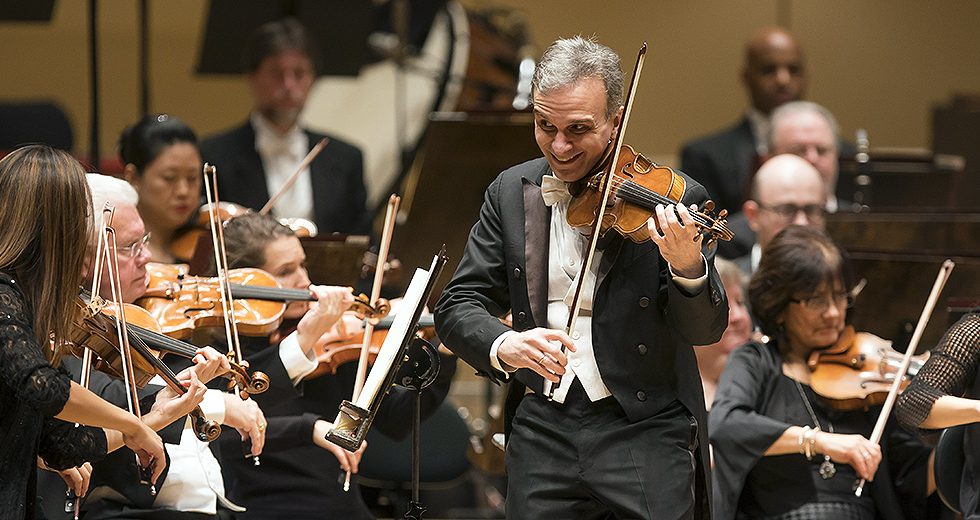Few composers of the 19th and early 20th centuries could evoke loneliness and solitude like Jean Sibelius. But his First Symphony contains far more: undercurrents of Finnish nationalism, hints of folk dances, and a stirring, Tchaikovskian passion. Finnish conductor John Storgårds makes his Chicago Symphony Orchestra debut in this concert leading his fellow countryman’s youthful and imaginative First.
Violinist Gil Shaham joins the orchestra for Mendelssohn’s Violin Concerto. This enchanting score was Mendelssohn’s final orchestral piece. It’s also a response to what he saw as the empty virtuosity plaguing concertos of his day. (Shaham also gives an encore written by Max Raimi, a member of the CSO’s viola section).
The concert opens with the first suite from Grieg’s Peer Gynt, and the broadcast closes with Carlos Miguel Prieto conducting the suite from Prokofiev’s music for the film Lieutenant Kijé.
Grieg Suite No. 1 from Peer Gynt
Mendelssohn Violin Concerto in E Minor, Op. 64
Gil Shaham, violin
ENCORE: Raimi Anger Management
Gil Shaham, violin
Sibelius Symphony No. 1 in E Minor, Op. 39
John Storgårds, conductor
Originally recorded at concerts in November and December 2017
Prokofiev Suite from Lieutenant Kijé
Carlos Miguel Prieto, conductor
Originally recorded at concerts in December 2014
More about Sibelius’s First Symphony: Jean Sibelius wrote this work in 1899, a year when the Finnish nationalist movement was becoming increasingly urgent. Russian Tsar Nicholas the Second had introduced new measures to suppress Finland’s autonomy and Sibelius responded with several patriotic anthems. The symphony also captured a nationalistic feeling, though it’s more beneath the surface. “This is not a piece about Finland,” says Storgårds. “But still there’s something about it that grabs the feeling of having something going on within the country at that time.”
This program will be available until April 21, 2021.
Photo: ©Todd Rosenberg Photography 2017

